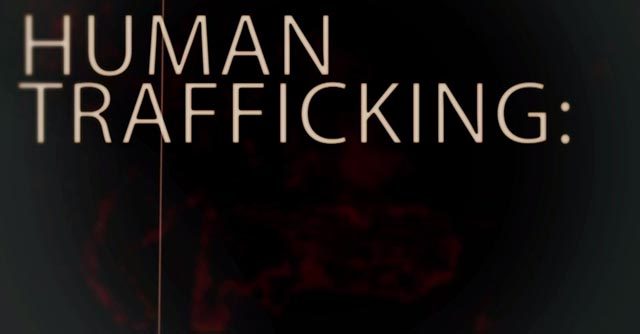Computer crime refers to criminal activity involving a computer. The computer may be used in the commission of a crime or it may be the target. Net-crime refers to criminal use of the Internet. Cyber-crimes are essentially a combination of these two elements and can be best defined as “Offences that are committed against individuals or groups of individuals with a criminal motive to intentionally harm the reputation of the victim or cause physical or mental harm to the victim directly or indirectly using modern telecommunication networks such as the Internet (Chat rooms, emails, notice boards and groups) and mobile phones (SMS/MMS)”. [1]
Continue Reading →

Human trafficking is a crime involving the exploitation of someone for the purposes of compelled labor or a commercial sex act through the use of force, fraud or coercion. While human trafficking is at an all-time high in Michigan, not everything you read is true. Learn more below.
1. Michigan is #2 in the nation in human trafficking
FALSE. While Michigan has seen a significant increase in human trafficking, our state is not second in the nation. Michigan actually comes in around #7-#11 in statistical ranking by the FBI. The “#2” statistic comes from a sting that the FBI- Exploitation Unit participated in called “Operation Cross Country” that targets traffickers and works to recover juveniles from their web of crimes. The Detroit FBI Team made the second most arrests and recoveries in 2016. This has led to misinformation indicating we have one of the worst trafficking problems in the nation, when in actuality, we have one of the best teams for combatting the issue.
2. More than 1,000 children go missing each month in Michigan
TRUE. Michigan law enforcement takes more than 1,000 reports of missing children every month (actual reports fluctuate between 1,000 and 1,400 reports each month). Most of these cases are voluntary, as in runaway cases, and most are resolved within a couple days. However, these kids are still at risk.
3. One in five runaways get involved in sex-trafficking
TRUE. The National Center for Missing and Exploited Children (NCMEC) released a formal report to the FBI in 2017 raising the former statistic of 1 in 6 children, to 1 in 5. This is very alarming to law enforcement, as most missing juveniles are considered a “runaway” and may not receive immediate investigative attention. This should not be the case with a statistic like that.
4. Victims of human trafficking will immediately ask for help and will self-identify as a victim of a crime
FALSE. Due to a variety of factors, including fear of their trafficker, self-blame, or the shame of being identified as being involved in sex-acts, victims may not share their situation. Often the victim is concerned about the fear of arrest or possible deportation, which may also inhibit the victim from reporting the incident.
5. Human traffickers are following my kids around at the mall, gas station, schoolyard, etc.
FALSE. There have been multiple viral social media posts about how someone was followed around a grocery store or mall by “two creepy men” or that someone tried to pull on their passenger door while they were pumping gas. There was also the myth of the flannel shirt on the windshield. All of these purported as “human trafficking incidents” have been debunked as myths.
It’s not that these scenarios couldn’t happen, but the reality is that most sex-trafficking incidents in Michigan start out with a victim meeting the traffickers online. Contacts mostly begin on social media apps like KIK, Tinder, and even Facebook and Snapchat. Any social media app that allows communication can be potentially dangerous to your child and especially if the app has a GPS locator! GPS location can tell the predator EXACTLY where your child is located. The victim may think the communication is innocent at first, but it may become aggressive, with the person asking to meet in person, or the person may attempt some type of a fraud, like making a job offer or a date in disguise as a sex-trafficking introduction.
If you suspect a child is being sex-trafficked or is in a labor trafficking situation, contact law enforcement or call the National Human Trafficking Hotline at 1-888-373-7888. If you have information about a missing person in Michigan that you are concerned is at risk, contact the Michigan State Police Missing Persons Clearinghouse at MSP-MissingPersons@

Please Share “Lincoln Park Fire Department – Heroin Awareness” Saving Lives!
Know Your Wireless Emergency Alerts
Alerts received at the right time can help keep you and your family safe during an emergency.
During an approaching natural disaster, the Wireless Emergency Alerts (WEA) will send a signal to your mobile phone, alerting you of an emergency. Your phone will vibrate and make a loud noise to indicate the emergency. WEA look like text messages, but are designed to get your attention and alert you with a unique sound and vibration, both repeated twice.
With WEA, you don’t need to download an application or subscribe to a service. Check with your service provider to find out if WEA are enabled on your device. Mobile users are not charged for receiving WEA and there is no need to subscribe. View the WEA public service announcement.
There are three types of alerts systems that are sent to your phone during an emergency or official public announcement:
- Extreme weather and other threatening emergencies in your area;
- AMBER alerts; and
- Presidential alerts during a national emergency.
In cases of a weather emergency, the National Oceanic and Atmospheric Administration Weather Radio All Hazards offers warnings, watches, forecasts, and other hazard information 24 hours a day, 7 days a week.
Many local jurisdictions also offer emergency alerts. You can find if your town, city, county, or state has an emergency alert system by performing an Internet search. Simply enter “alert” and the name of your area into a web browser.
The National Weather Service offers more information on WEA, including what kinds of weather emergencies prompt a notification. In addition, FEMA developed answers for frequently asked questions on WEA.
Source: U.S. Federal Emergency Management Agency (FEMA)
Protecting Your Food During an Outage
If your power goes out, knowing what to do with the food in your refrigerator and freezer can help you to stay healthy.
The Food and Drug Administration recommends you take three steps to keep your food safe during a power outage:
- Make sure you have appliance thermometers in the refrigerator and freezer;
- Know where you can get dry ice or block ice; and
- Keep a few days worth of ready-to-eat foods that don’t require cooking or cooling, such as canned goods.
If you do experience a power outage, the U.S. Department of Agriculture (USDA) suggests that you keep your refrigerator and freezer doors closed. In addition, consider:
- Transferring your food to a cooler and fill it with ice or frozen gel packs if your power is off longer than four hours;
- Keeping your freezer fully stocked, as a packed freezer will hold the temperature for approximately 48 hours (24 hours if it is half full); and
- Placing food in the back of the freezer. Food items in the front, in the door, or in small packaging will defrost faster.
Refer to the USDA’s Refrigerated Food and Power Outages: When to Save and When to Throw Out for food safety during a power outage, including what items you may need to throw away because of a prolonged outage.
Source: U.S. Federal Emergency Management Agency (FEMA)